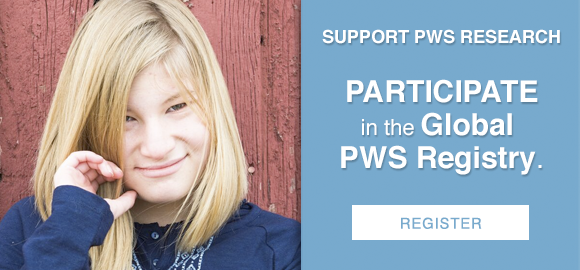Dental issues in PWS can result from symptoms directly related to PWS, such as low saliva production, combined with challenges that individuals with special needs may have with maintaining good oral hygiene. Here, we focus on data from the Global PWS Registry exploring the incidence of common dental issues in PWS, along with oral surgeries and orthodonture.
.png?width=600&height=1500&name=Registry%20Infographic_Dental_June2023%20(1).png)
Dental issues like hyposalivation (low saliva production), teeth grinding, and cavities are common in individuals with PWS as young as 5 years old. Within the Global PWS Registry, 59% of individuals have low saliva production, which is more than double that of the general population. In the general population, hyposalivation is a commonly seen side effect of medications, and also increases in the elderly. Individuals with PWS often start with a lower-than-normal saliva production, which can be made worse by common medications within the PWS community, including many of those for anxiety and psychiatric disorders. The impacts of low saliva production can include tooth decay and yeast infections in the mouth. Saliva is also an important part of eating, providing lubricant for foods during swallowing. Some individuals with PWS already struggle with swallowing due to poor muscle tone, and low saliva production can further contribute to residual food being stuck in the mouth and esophagus, and become a choking risk. Encouraging small sips of water during meals can be helpful to minimize these issues.
The incidence of teeth grinding among PWS Registry participants age 5 and older is 50%. This is well above reports of teeth grinding in the general population, which ranges from 8-30%. The simple sound of teeth grinding can be very irritating to caregivers and family members. However, teeth grinding can also cause a variety of health effects including jaw muscle pain, headaches, damage to teeth and dental work including crowns and fillings. Treatments for teeth grinding can include a mouth guard to help prevent damage, and crowns to repair damaged teeth.
Dental issues including gum disease and tooth loss begin to increase in adulthood. A third of individuals within the Registry report gum disease, and 22% of adults within the Registry report loss of at least one adult tooth. It is difficult to compare these numbers to the general population since oral health varies greatly by age, country, race, socioeconomic status, and other factors. However, the take-home message here to maintain a good oral hygiene routine and regular visits to the dentist.
When it comes to more advanced dental procedures, by age 5, 20% of individuals in the Registry have had some type of dental surgery, and this increases to over 50% by age 21. In childhood, these surgeries are primarily caps/crowns, and removal of baby teeth. As participants get older, the most common surgeries continue to be caps/crowns, and then extraction of wisdom teeth. This high rate of caps/crowns is consistent with the high incidence of teeth grinding among this population.
In summary, individuals with PWS face many of the same common dental issues as the general population. However, the low saliva production and high rate of teeth grinding in PWS add additional stressors, which can make it more difficult to maintain a healthy mouth and teeth. A strong oral hygiene routine and consistent visits to the dentist can help prevent some of these dental problems, and early treatment can help keep these issues from worsening.
Many thanks to the families who contributed data to the dental survey of the Global PWS Registry. For more information on the Global PWS Registry, including how to join or to update your surveys, please visit pwsregistry.org or email the Registry here.








